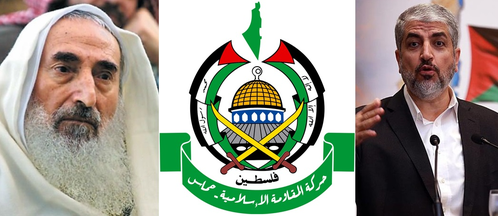New Delhi (IANS) Facing its biggest threat since the Yom Kippur War half a century back, Israel has declared a state of war as it scrambles to counter the Hamas gunmen who poured out of Gaza Strip to create havoc in the south of the nation. But how responsible was Israel itself for the rise of the Palestinian Islamist extremist group?
Quite so, as various episodes over the last five decades reveal, and the most of this was done in the various governments led by Benjamin Netanyahu over the last three decades. His approach was to divide the Palestinians of the Gaza Strip and the West Bank, so as to cripple Palestinian Authority President Mahmoud Abbas while propping up Hamas as a “counterweight”.
The intent was to prevent Abbas — or anyone else in the Palestinian Authority’s West Bank government — from advancing toward the establishment of a Palestinian state, as per a report in the Times of Israel.
Senior Israeli officials have disclosed that various governments had supported quadriplegic Sheikh Ahmed Yassin, who would go on to set up Hamas in 1987 amid the first Intifada, right from 1973, when Golda Meir was the Prime Minister.
Sheikh Yassin had then founded charity ‘Islamic Centre’ in Gaza, after hiving off from the Muslim Brotherhood over its political stance. It was then the Israeli authorities supported and even funded Yassin’s as a move to build up a rival to the secular Palestine Liberation Organisation, as then Military Governor of Gaza Yitzhak Segev revealed.
Avner Cohen, who was in charge of religious affairs in Gaza, also admitted that his country had contributed quite a bit to the group’s creation, despite his fervent warnings not to back the Islamists.
After the creation of Hamas itself, Israel committed another blunder in December 1992, soon after Yitzhak Rabin had replaced hardliner Yitzhak Shamir. In wake of the killing of a border police officer, over 400 members of Hamas and Islamic Jihad were sent to (then Israel-occupied) Southern Lebanon.
This was intended as a punishment, but achieved the opposite – as Israel would learn to its cost later.
The “deterrent action” only enabled the Hamas deportees to establish contacts with Shia militant group Hezbollah, as well as Palestinians living in refugee camps in Lebanon, and learn the art of suicide and car bombing, before they were allowed to return home late next year after a global outcry.
Netanyahu, who became Prime Minister for the first time in June 1996, committed his first miscalculation vis-a-vis Hamas when his government ordered the assassination of Hamas leader Khaled Mishal in Jordan in September 1997.
Mishal, then chairman of Hamas’ political bureau, had an unknown poison squirted in his ear on Amman’s streets and slipped into a coma but the assailants – Israeli agents using faked Canadian passports – were caught.
An enraged King Hussain demanded Netanyahu furnish the antidote, and on his refusal, threatened to scrap the 1994 peace treaty with Israel and hang the assailants in public. The row drew in the US – and even President Bill Clinton lost his temper at Netanyahu’s evasions.
Ultimately the antidote was furnished, a prisoner swap – including for Sheikh Yassin, then serving a life term in an Israeli jail, arranged.
All the botched operation led to was the rather marginalised Hamas emerging as the new face of Palestinian resistance and the hitherto-obscure Mishal became a household name in the Middle East as “the martyr who did not die”.
Though the organisation would be expelled from Jordan two years later and forced to relocate to Syria, two decades later, despite many challenges and changes, Hamas remains a power to reckon with.
Its victory in the 2006 Palestinian elections and then control over Gaza, after driving out Mahmoud Abbas’ Fatah, showed that it had become a factor in Palestinian politics. Its efforts to control the rampant crime and dismal services in Gaza made it popular among the enclave’s residents.
Hamas is likely to be defeated in the current conflict but will not fade away. Arab governments may not like it much, but cannot ignore it – and the Arab street is much in its favour. Israel is also faced with the realisation that ignoring the aspirations for a Palestinian state cannot be wished away.
It must also be considered that while India joined the Western powers in strongly condemning the attack, the response from the rest of the ‘Global South’, including Brazil, South Africa, and Indonesia, as well as Russia and China, was much more nuanced and called for both sides to stop fighting and exercise restraint.
Also, while Western powers term Hamas a terrorist organisation, a bid to obtain UN backing for this stance could not pass the General Assembly.

